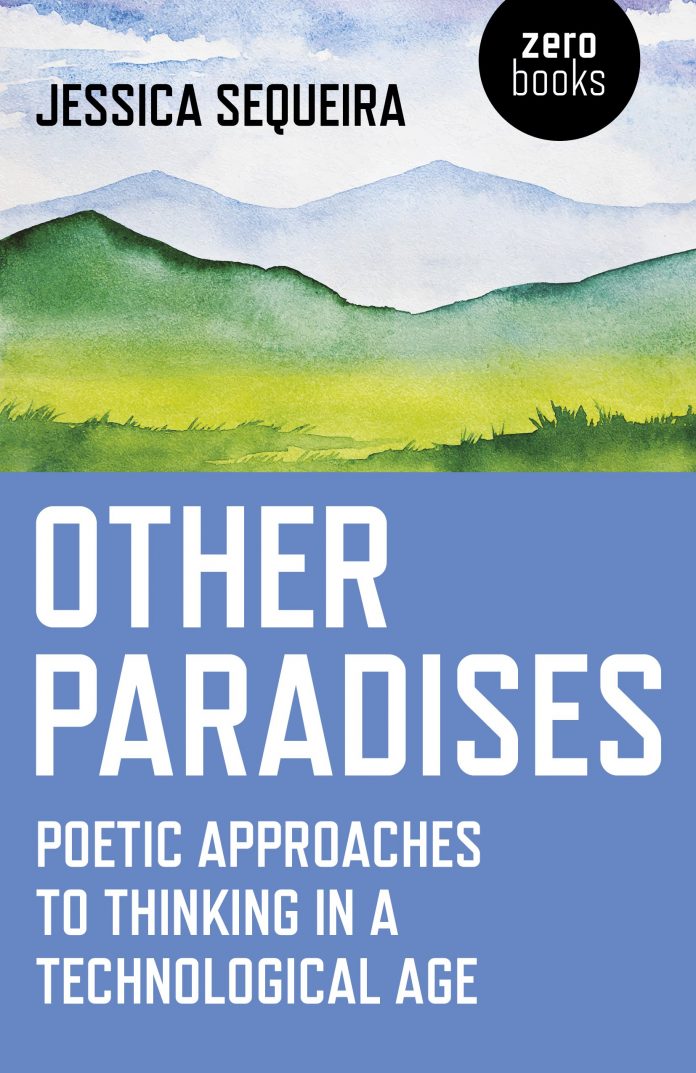(THIS ARTICLE IS MACHINE TRANSLATED by Google from Norwegian)
Why do we behave in unproductive ways? Author Jessica Sequeira replies that "unproductive behavior" is linked to the experience of freedom and the making of interesting relationships. In modernity, we create personal utopias that include technology in new ways. This contributes to the formation of apocalyptic ideas, dystopias, autobiographies and history.
Sequeira writes that people are often aware that they are building their lives on "precarious premises" and that they often have a feeling of being born too late or premature. They build artificial paradise and try to find new ways of communicating – either using technology or without it.
What is an artistic and imaginary response to technology? To develop a way of being that does not deny technology, but which embraces it in a human way, where the goal is not increased productivity, but to create something in an imaginative context. Something that launches human processes in a playful way, and which transforms technological processes into vivid performances. Imaginary encounters with technology can build entire houses for unexpected ideas, utopias and visions, and can build dream castings based on both facts and fiction.
Tactile longing
Other Paradises is a journey. First stop is Japan, a country with a technology fetish. “Tokyo is an epicenter for thoughtful use of useless technology. The fax machine is so much loved that the government has reported an almost irrational connection to this strange, outdated machine. ”The author describes how the fax machine is viewed as a kind of technological herbarium: "The strong smell of ink perfumes the air in offices all over this vast country. Old technology lives in close proximity to the new one, obviously not rejected. "(One could call it" Mathilda Syndrome, "after Phillip Newt's novel, in which an outdated robot is the protagonist.)
The Japanese love the fax machine, because it is something physical to put your hands around. Who wants a girlfriend who doesn't exist anywhere else in cyberspace? Everyone needs it physical world. And Japanese culture is still linked to the manuscript: Japanese people often write their CVs by hand, because employers believe that the manuscript says a lot about the personality of the job seeker.
Imaginary encounters with technology make room for unexpected ideas.
Just throwing the old machines – and letting them die in the technology cemetery – is obviously not creative. People use technique in their own art, they can also imitate a machine's way of writing and thinking, and use it actively in their own writing process. This provides imaginary imagery in the era of technology. And of course, machines can also emulate humans. But this is first and foremost an expression of human creativity, not that machines can be creative?
Intelligent considerations
Sequeira also travels to Mexico, where she learns to be process-focused; to Bolivia, where she visits aliens; to India, where she learns to laugh at modernity; to Turkey, where she learns to move backwards; to France, where she learns to transform sensory data; to New Zealand, where she learns to treat historical topoi in a conceptual way.
The author has some funny comments in between, such as: “I wish I was a conspiracy theorist. Conspiracy theorists are like a family with small family albums they can produce and show to people: Look, this is my family, and we also have something to say. "
The book is interesting and vibrant, and comes with intelligent considerations about the relationship between technology and fiction. "Both technology and fiction can generate ideas and bring them into the world," Sequeira argues. Contemporary literature, for example, can describe the problems of dealing with technology, either as a form of mental torture (which I have experienced many times, when people talk loudly on the cell phone on the tram), or as a source of creativity.
Free fantasy flow
Whether intelligent life exists on other planets may be impossible to determine, but the concept of "alien" and the notion of "aliens" can nevertheless be used as a playful and vivid response to our world's technology. The author aims at the way technology can be incorporated into the fiction of movies and books. We all know Alienmovies, and Riddley Scotts Prometheus, where some of the alien creatures are xenomorphic squid – the creatures on earth that might look like least on man.
She points out that grammatical differences can be decisive for what we associate with. If we do not connect with UFOs, we can connect with OVNI (Objeto Volador No Identificado). Does it sound more human in Spanish? Or maybe more foreign, since the words are in a foreign language? She believes that by creating new linguistic associations we can form new imaginary connections. In this case, this must mean that the formation of new grammatical expressions is very crucial to the way we connect with the world.
The wonderful and terrifying idea that someone will one day come from the future to visit us, Sequeira admits. This thought is in itself a thought with so many underlying implications that it should fill a human being with imaginary notions for the rest of his life.
Some argue that traveling back in time is impossible, but if we follow Jessica Sequeira's fine book, we should not let the imagination be hardened by the expert's "sensible" objections, but allow the imagination to flow freely and embrace technology as a rich store of performances. This is how we keep the world alive.


